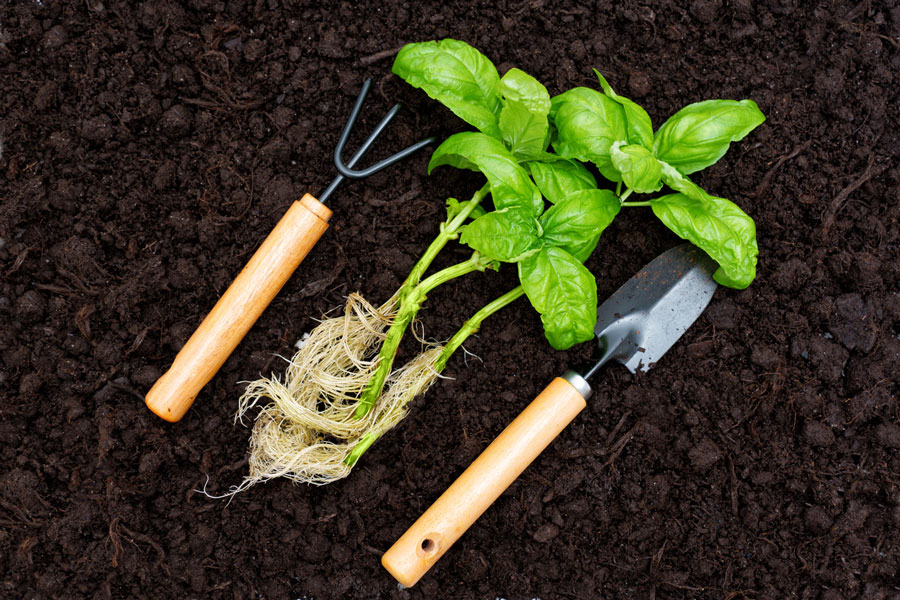In our series on healthy eating in recovery (previous entries: one, two, three, and four, we have written extensively about what foods you should consider eating to make your diet healthier and better for your ongoing recovery.
In this entry, we want to focus on a couple of ways you can directly shape your eating habits. Let’s take a look at how getting out into a garden and doing more cooking at home can benefit a person in recovery from a substance use disorder.
You Can Get a Garden Growing
You might not think of yourself as someone who has a green thumb. Maybe you even have trouble keeping your houseplants alive. If that is the case, it might strike you as ridiculous for us to suggest you should try your hand at gardening.
Or maybe you are pretty sure you could grow some things, but you just do not have the space to do so. That might be because you live in an apartment or because you have a small yard or what have you.
We appreciate how those things might seem like obstacles to gardening. But we are also convinced you could take advantage of a garden to grow yourself some healthy food.
With a little research and a little hard work (here is a good resource to get you started), you can get some seeds in the ground and care for them until they yield fruits or vegetables. There are often alternatives that can allow you to do some gardening even if you do not have a lot of space to do so at home. You could, for example, use raised beds that allow you to fit some gardening plots into smaller spaces. Alternatively, you could see if there is a community garden near you—and if there is not, you could even look into starting one.
Before we leave the topic of gardening, we should mention that even if you choose to start a flower garden rather than a food garden, the activity is still a great way to support your recovery. That is because gardening can be an engaging hobby—no matter what you are growing.
You Can Get Things Cooking
You might not think of yourself as much of a cook. Maybe no one has really ever taught you to cook. Maybe you watch food shows on TV and enjoy watching people cook but do not feel any temptation to do it yourself.
Or maybe you know that you actually can cook, but you are put off by the time it takes, the mess it makes, or both. Maybe it just seems easier (even if it is expensive) to go out and to get take out or to have something delivered most of the time.
We appreciate that those things might seem like obstacles to cooking. But we are also convinced you could become a whiz in the kitchen.
After all, the world is full of recipes. You can find them online. You can find them, for some reason, in some mystery novels. You can find them in the nearly infinite number of cookbooks that are available. Here, for example, is a list of healthy recipes—that also addresses the concern about how much time cooking can take up.
That said, we do acknowledge that cooking takes time and often results in a mess. Still, if you are making delicious and healthy food—and having a good time doing it—you are getting lots of benefits for your mental health, your physical health, and your recovery that just might justify the mess you have to clean up. Cooking, like gardening, can serve as a wonderful hobby—and one you can enjoy with friends and family when you share your efforts with them. You just might find that having to do some dishes on the backend is, in the end, a small price to pay.
Let’s Get Your Recovery Started
If you are struggling with substances, you might be feeling like you do not have any real options other than continuing to use drugs or alcohol. The withdrawal symptoms that arise when you try to quit on your own can be just as devastating as the problems caused by the substances themselves. That can certainly feel like you are caught in a trap.
The Aviary Recovery Center offers a way out of that trap. We provide personalized treatment for substance use disorders and co-occurring mental health disorders. Medically supervised detoxification offers an opportunity for you to get drugs or alcohol out of your system in a safe environment that is free of temptations. Our rehabilitation program—built around individual and group therapy—offers resources and strategies for maintaining your recovery. Our continuum of care, which ensures you have ongoing support, is designed to help you start your recovery journey with confidence.
The best time to get your recovery started is always right now. We are ready to help.










